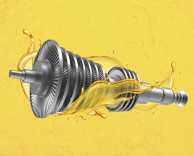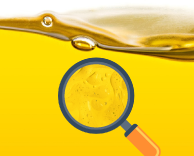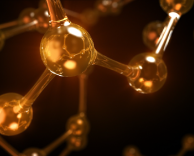Functions of Hydraulic Oil and Reasons for Its Contamination
Introduction to Hydraulic Oil
Hydraulic oil is a critical component of hydraulic systems, acting as the lifeblood that ensures seamless operation. It serves multiple essential purposes, including power transmission, lubrication, heat transfer, and sealing. However, like any fluid, hydraulic oil is prone to degradation and contamination, which can significantly impact system performance and longevity. This article delves into the core functions of hydraulic oil, the reasons for its contamination, and the measures to mitigate its adverse effects.
Key Functions of Hydraulic Oil
Hydraulic oil plays four primary roles that are vital for the efficiency and reliability of hydraulic systems:
Energy Transmission
Hydraulic oil acts as the medium for transmitting energy from the pump to the actuators and motors in the system. Pressurized oil enables the movement of heavy loads and precise control of machinery.
Lubrication
The oil lubricates internal components, such as valves, pumps, and actuators, reducing friction and wear. This ensures smoother operation and prevents premature equipment failure.
Heat Transfer
During system operation, hydraulic oil absorbs heat generated by mechanical components. It then transfers this heat to coolers or dissipates it through the system, preventing overheating.
Sealing
Hydraulic oil helps seal clearances between moving parts, minimizing leakage and maintaining system pressure. Proper sealing ensures efficient operation and reduces the risk of contamination.
Importance of Proper Hydraulic Oil Maintenance
Regular maintenance of hydraulic oil is essential to prevent system failures and reduce downtime. By monitoring the oil’s viscosity, cleanliness, and other properties, operators can ensure that the system performs as intended. Proper maintenance also extends the lifespan of components and reduces overall operating costs.
Reasons Behind Hydraulic Oil Contamination
Hydraulic oil contamination can occur due to various factors, including:
- Introduction of contaminants during system assembly.
- Ingress of external particles through seals and breather caps.
- Degradation of oil due to oxidation or thermal stress.
- Wear and tear of internal components generating debris.
Types and Sources of Contamination
Contamination can be classified into four main categories:
Built-in Contamination
This type of contamination is introduced during manufacturing and assembly. It includes metal shavings, dust, and debris left in the system components.
Natural Contamination
This occurs due to environmental factors such as dust, dirt, and moisture entering the system over time.
Ingressed Contamination
Contaminants enter the system through worn seals, faulty breather caps, or other openings during operation.
Generated Contamination
This refers to contaminants created during system operation due to wear and chemical reactions. Common types include:
- Abrasive Wear: Hard particles scrape component surfaces, causing damage.
- Cavitation Wear: Fluid voids implode, leading to surface erosion.
- Fatigue Wear: Repeated stress on a damaged area causes spalling.
- Erosive Wear: High-speed fluid particles erode surfaces.
- Adhesive Wear: Loss of oil film causes metal-to-metal contact.
- Corrosive Wear: Chemical contamination or water causes rust and surface degradation.
Impact of Contaminants on Hydraulic Systems
Contaminants can have severe consequences, including:
- Increased wear and tear on components.
- Reduced efficiency and performance.
- Higher energy consumption due to friction.
- The shortened lifespan of the equipment.
- Frequent breakdowns and increased downtime.
Like, Comment, Share this article to spread awareness and sensitize the reader for Zero Mechanical Breakdown.
Best Practices to Prevent Hydraulic Oil Contamination
- Use High-Quality Oil:Always use oil that meets the system’s specifications.
- Maintain Seals: Regularly inspect and replace worn seals to prevent ingress of contaminants.
- Install Filters:Use appropriate filters to remove particles and maintain oil cleanliness.
- Monitor Oil Condition: Regularly check oil viscosity, color, and contamination levels.
- Flush System Before Use: Clean the system thoroughly before adding fresh oil.
- Minimize System Openings:Avoid exposing the system to external contaminants.
Role of Filtration in Hydraulic Oil Maintenance
Filtration is a critical step in maintaining hydraulic oil cleanliness. Advanced filtration systems can remove particles as small as 3 microns, ensuring that the oil remains free of damage-causing contaminants. Minimac Systems offers a range of filtration solutions tailored to different hydraulic systems, helping to prolong equipment life and improve efficiency.
How to Identify Hydraulic Oil Contamination
While most contaminants are microscopic and invisible to the naked eye, certain signs indicate contamination:
- Changes in oil color or odor.
- Increased operating temperatures.
- Erratic system behavior or reduced performance.
- Presence of visible particles in the oil.
Regular oil analysis can provide a detailed assessment of contamination levels, allowing for timely corrective actions.
FAQs
Conclusion
Hydraulic oil is the backbone of any hydraulic system, playing an indispensable role in energy
transmission, lubrication, heat dissipation, and sealing. However, contamination poses a
significant threat to its efficiency and longevity. Understanding the sources and types of
contamination, along with their impact on system performance, is critical for effective
maintenance.
By adopting best practices such as using high-quality oil, implementing robust filtration
systems, and conducting regular oil analysis, operators can mitigate contamination risks and
enhance the reliability of their equipment. Minimac Systems stands as a trusted partner in
hydraulic oil maintenance, offering expert guidance and cutting-edge solutions to ensure your
systems perform at their best.
Proper hydraulic oil maintenance is crucial for the efficiency and reliability of hydraulic
systems. By understanding the functions of hydraulic oil, the causes of contamination, and the
measures to prevent it, operators can minimize downtime, reduce costs, and extend equipment
life.





